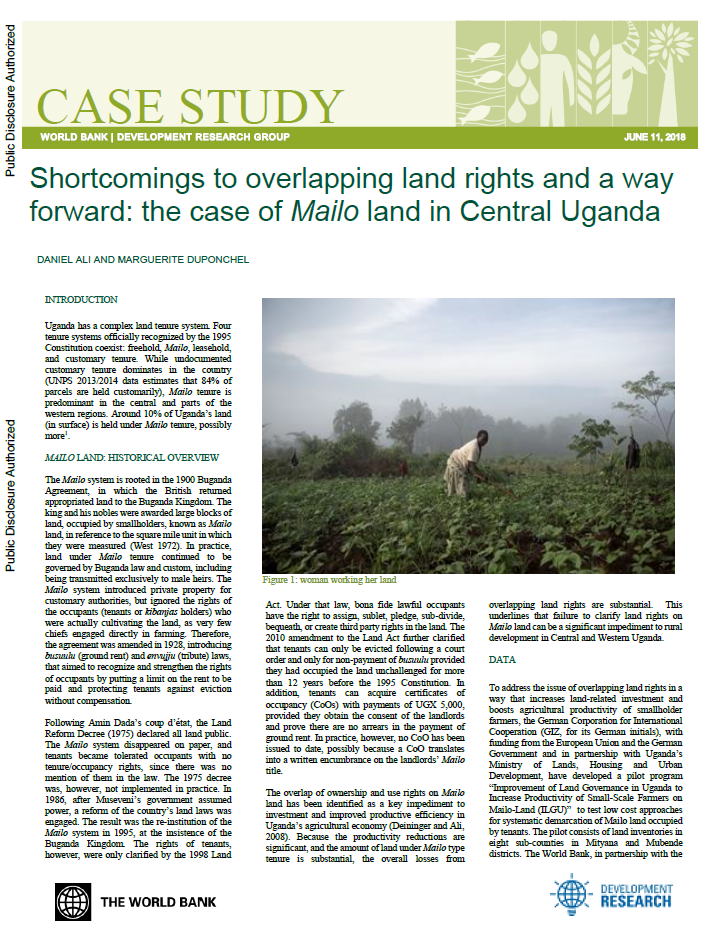The mission of The World Bank Economic Review is to encourage and support research in the field of development economics. We seek to publish and disseminate innovative theoretical and empirical research that identifies, analyzes, measures, and evaluates the macro and micro-economic forces that promote or impede economic development with a view towards providing the knowledge necessary for designing, implementing, and sustaining effective development policies in low and middle income countries. Our intended audience comprises a worldwide readership of economists and other social scientists in government, business, international agencies, universities, and research institutions.
Members:
Resources
Displaying 1 - 5 of 41Climate-Smart Agriculture for Punjab, Pakistan
The climate-smart agriculture (CSA) concept reflects an ambition
to improve the integration of agriculture development and climate
responsiveness. It aims to achieve food security and broader
development goals under a changing climate and increasing food
demand. CSA initiatives sustainably increase productivity, enhance
resilience, and reduce/remove greenhouse gases (GHGs), and
require planning to address trade-offs and synergies between
these three pillars: productivity, adaptation, and mitigation [1].
Mitigating drought in drylands: Quantifying the potential for strengthening crop- and livestock-based livelihoods
Climate-Smart Agriculture in Zimbabwe
The climate-smart agriculture (CSA) concept reflects an ambition
to improve the integration of agriculture development and climate
responsiveness. It aims to achieve food security and broader
development goals under a changing climate and increasing food
demand. CSA initiatives sustainably increase productivity, enhance
resilience, and reduce/remove greenhouse gases (GHGs), and
require planning to address trade-offs and synergies between
these three pillars: productivity, adaptation, and mitigation [1].
Climate-Smart Agriculture in Lesotho
The climate-smart agriculture (CSA) concept reflects an ambition
to improve the integration of agricultural development and climate
responsiveness. It aims to achieve food security and broader
development goals under a changing climate and increasing food
demand. CSA initiatives sustainably increase productivity, enhance
resilience, and reduce/remove greenhouse gases (GHGs); and
require planning to address trade-offs and synergies between
these three pillars: productivity, adaptation, and mitigation [1].
Case Study - Shortcomings to overlapping land rights and a way forward: the case of Mailo land in Central Uganda
Uganda has a complex land tenure system. Four tenure systems officially recognized by the 1995 Constitution coexist: freehold, Mailo, leasehold, and customary tenure. While undocumented customary tenure dominates in the country (UNPS 2013/2014 data estimates that 84% of parcels are held customarily), Mailo tenure is predominant in the central and parts of the western regions. Around 10% of Uganda’s land (in surface) is held under Mailo tenure, possibly
more.




